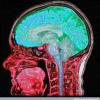Is there any evidence or studies out there about a rebound effect of cognitive ability?
Not as yet that I am aware of.
However, please note that it would be highly unsual for any substance with this particular mechanism of action and which has been shown not to develop tolerance to its effects to have a rebound effect.
...and that once off the stuff, people turn to baseline
Actually, my understanding is that is not the case at all; in fact, my hypothesis is that the suggested cycling regimen is specifically due to the fact that studies have demonstrated lasting effects for a significant time period following cessation, and hence to an extent one can reap the benefits of continuous therapeutic beneficial effects without having to administer CEREBROLYSIN continuously.
Can that be offset with dark chocolate...
You might want to bear in mind that research has demonstrated, contrary to popular belief, that chocolate is essentially a 'bad deal' in that it induces mood disruption, including depression. Take this study for example:
Arch Intern Med. 2010 Apr 26;170(8):699-703.
Mood food: chocolate and depressive symptoms in a cross-sectional analysis.Rose N,
Koperski S,
Golomb BA.
SourceDepartment of Medicine, University of California, San Diego, 9500 Gilman Dr, MC 0995, La Jolla, CA 92093-0995, USA.
AbstractBACKGROUND: Much lore but few studies describe a relation of chocolate to mood. We examined the cross-sectional relationship of chocolate consumption with depressed mood in adult men and women.
METHODS: A sample of 1018 adults (694 men and 324 women) from San Diego, California, without diabetes or known coronary artery disease was studied in a cross-sectional analysis. The 931 subjects who were not using antidepressant medications and provided chocolate consumption information were the focus of the analysis. Mood was assessed using the Center for Epidemiologic Studies Depression Scale (CES-D). Cut points signaling a positive depression screen result (CES-D score, >or=16) and probable major depression (CES-D score, >or=22) were used. Chocolate servings per week were provided by 1009 subjects. Chocolate consumption frequency and rate data from the Fred Hutchinson Food Frequency Questionnaire were also available for 839 subjects. Chocolate consumption was compared for those with lower vs higher CES-D scores. In addition, a test of trend was performed.
RESULTS: Those screening positive for possible depression (CES-D score >or=16) had higher chocolate consumption (8.4 servings per month) than those not screening positive (5.4 servings per month) (P = .004);
those with still higher CES-D scores (>or=22) had still higher chocolate consumption (11.8 servings per month) (P value for trend, <.01).
These associations extended to both men and women. These findings did not appear to be explained by a general increase in fat, carbohydrate, or energy intake.
CONCLUSION: Higher CES-D depression scores were associated with greater chocolate consumption. Whether there is a causal connection, and if so in which direction, is a matter for future prospective study.
Russianbear seems to note a rebound effect in mood and depressive levels...Does anyone here have any information as to whether a one month only dose at 10 ml might produce a rebound effect several months later? I read the work of one neuroscientist who indicated the neuroprotective effects last well beyond the medication's usage. After a cycle is over for a few weeks, would replacing cerebrolysin with another MAO inhibitor such as a 98% transresveratrol until before the next cycle offset any potential rebound effect?
I think we first need to ascertain
IF there is in fact any potential for CEREBROLYSIN to induce a rebound effect. So far, there is NOTHING contained within the many studies that have indicated as such, nor is it likely given CEREBROLYSIN's mechanism of action. All we have is a single user report. More user feedback will be helpful in this regard and I will most certainly do my bit to contribute towards this by posting my personal experiences regarding using CEREBROLYSIN.























































